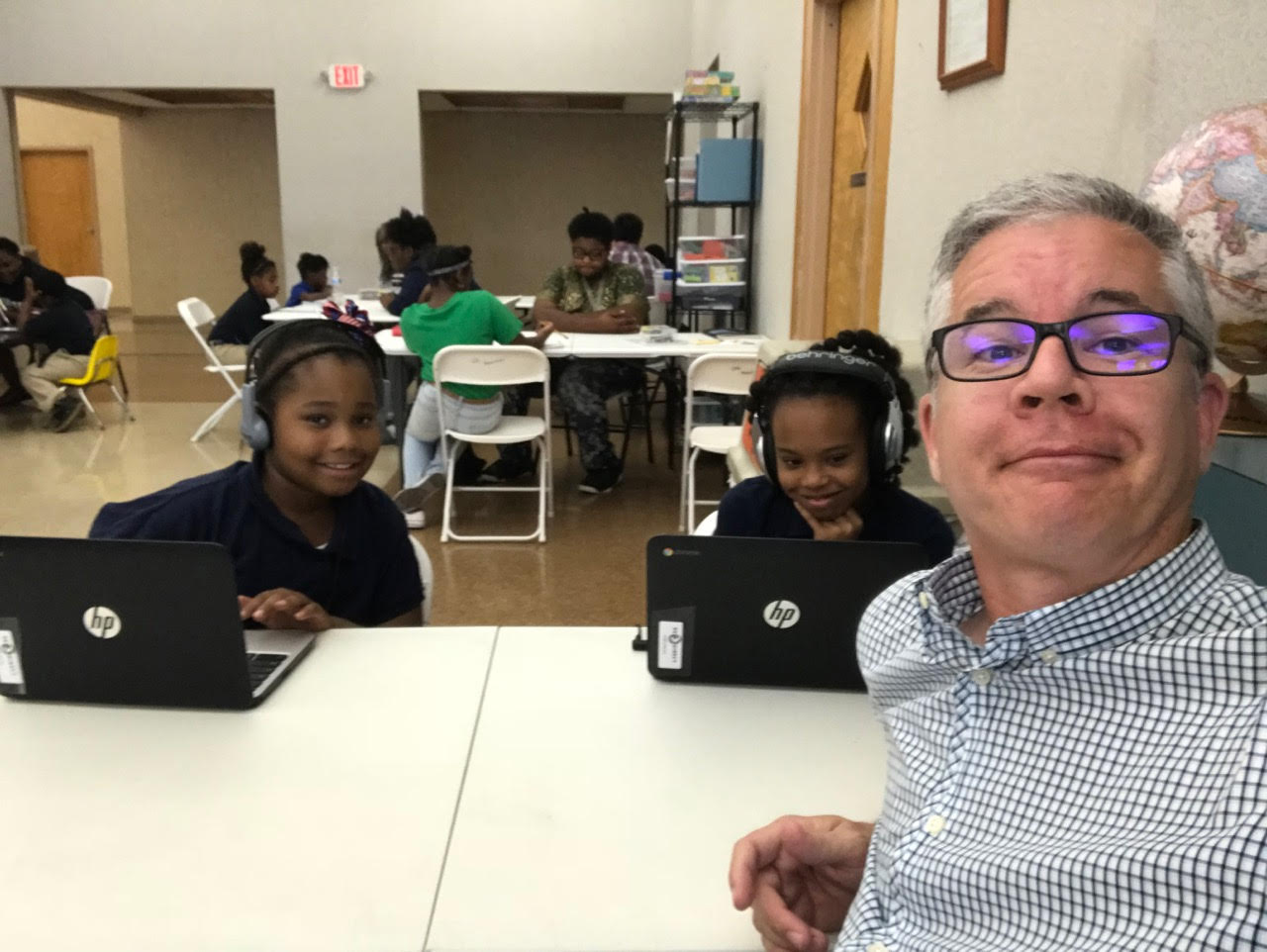Driving south down Highway 61, through the heart of the Mississippi Delta, it’s easy to see why the land named the music to which it gave birth is “the blues.” The impossibly flat stretch of Northwest Mississippi is often referred to as America’s Breadbasket. Fields of cotton, soybeans, and corn wave at you as you go by.
About ten miles north of Cleveland, MS, a large green sign appears on your right pointing the way to Mound Bayou. A tiny speck on the landscape, Mount Bayou was founded in the late 1800’s by former slave Isaiah Montgomery, its first mayor. Of its almost 1,000 residents, none are white.
I am on my regular campus visit to Delta State University in Cleveland. My car has two passengers, RUF students giving me directions as we head towards town. Asia and Artis direct me just off the highway to a smallish community center. Clean and functional, we will spend the next two hours together serving children in an after-school program begun by friends of RUF at Delta State.
The director points me to a table halfway back. Two 3rd grade girls sit at computers working through their social studies worksheets. I introduce myself and find out their names are LaTasha and Jaihda. It takes a while to make good eye contact. I’m aware that I’m not the only occasional volunteer who’s been here before. The other RUF student volunteers are getting a better reception. They come here often.
LaTasha and Jaihda are extremely bright. They hardly miss any of their social studies questions. LaTasha speaks directly to me first, asking me to get new worksheets. “You have to pick them out for us.” The folder I search through is full of papers on state capitals, farming vocabulary (of course), and chocolate production. They are giddy when I choose the worksheet on chocolate. I had broken through.
Soon, both girls were telling their stories of school and family, of their thankfulness for the after-school program, of their friends who make them laugh incessantly. They are, after all, just little girls. I try hard to see the world through their eyes. I sigh a bit as they pepper me with questions about the cocoa plant. You don’t have to be a social scientist to realize that both of these women will struggle mightily to make it out of here. Poverty is sticky. Once you’re in, it’s not easy to get out. At least not for people growing up in this place.
The whole scene starts to work on me: what am I doing here? I look around the room at the six or so RUF students, all African American, who have joined us this afternoon, as they do every Thursday afternoon, to help this community. It’s not much, but they know the children, they are their cheerleaders, even pray with them when their story turns sad. The campus minister has his back to me but he’s walking through a sixth grader’s math homework.
Jesus said we would find him among the “least of these.” If he wasn’t talking about Mound Bayou, MS, then I don’t know anything about the Bible. It occurs to me in a flash: RUF is located on 150 campuses all across the country. I think about the urban elitism of Columbia University and Eric Lipscomb. I picture Matt Howell preaching to hundreds of college students at the University of Tennessee in Knoxville. I imagine Stanford University in the heart of Silicon Valley and Britton Wood’s dynamic work in an incredibly secular environment. All of these men and the works God is doing through them inspire me.
However, I realize that it is this, THIS place that gives me the clearest glimpse into the Kingdom of God. The Gospel of the Lordship of Jesus is transformational in the lives of college students in all kinds of environments, all kinds of backgrounds, all kinds of families. It cuts through the rebellion of younger brothers and older brothers alike, bringing down strongholds set up against the knowledge of God. It is for rich kids, poor kids, proud kids, heartbroken kids, kids newly in love, and kids deeply depressed. How is it possible that the same Gospel that speaks to a skeptical, New York Ivy Leaguer also moves an African American, lifelong Mississippi Delta student to sit with the forgotten of this world, and lead them to Jesus over spelling homework?
What else could send these RUF Delta State students into the heart of incarnated, institutional poverty than the transformational Gospel of Jesus? Jesus is King of prince and pauper alike.
There are few greater privileges this Area Coordinator for RUF gets than a front row seat for the expansion of tomorrow’s church. And everyone of us, from campus minister to intern to staff to an office worker, are richer for the view.
